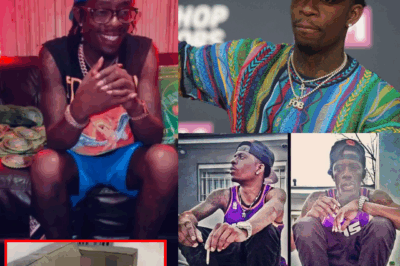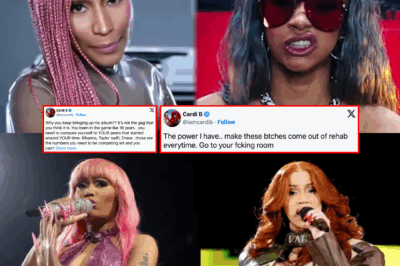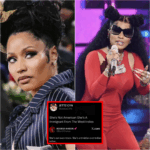When it comes to Nicki Minaj, controversy has never been far behind — but this one hit different. Over the weekend, a wave of online debates erupted after some American users claimed that Nicki Minaj — born Onika Tanya Maraj in Trinidad and Tobago — “isn’t really American.” Others went even further, arguing that she “isn’t even Black,” sparking outrage among fans and igniting one of the most heated cultural identity debates in years.
For millions, Nicki isn’t just a rapper — she’s a symbol. The woman who came from the islands, conquered America, and reshaped hip-hop in her image. But according to critics online, her immigrant background somehow disqualifies her from being “a real Black American woman.”
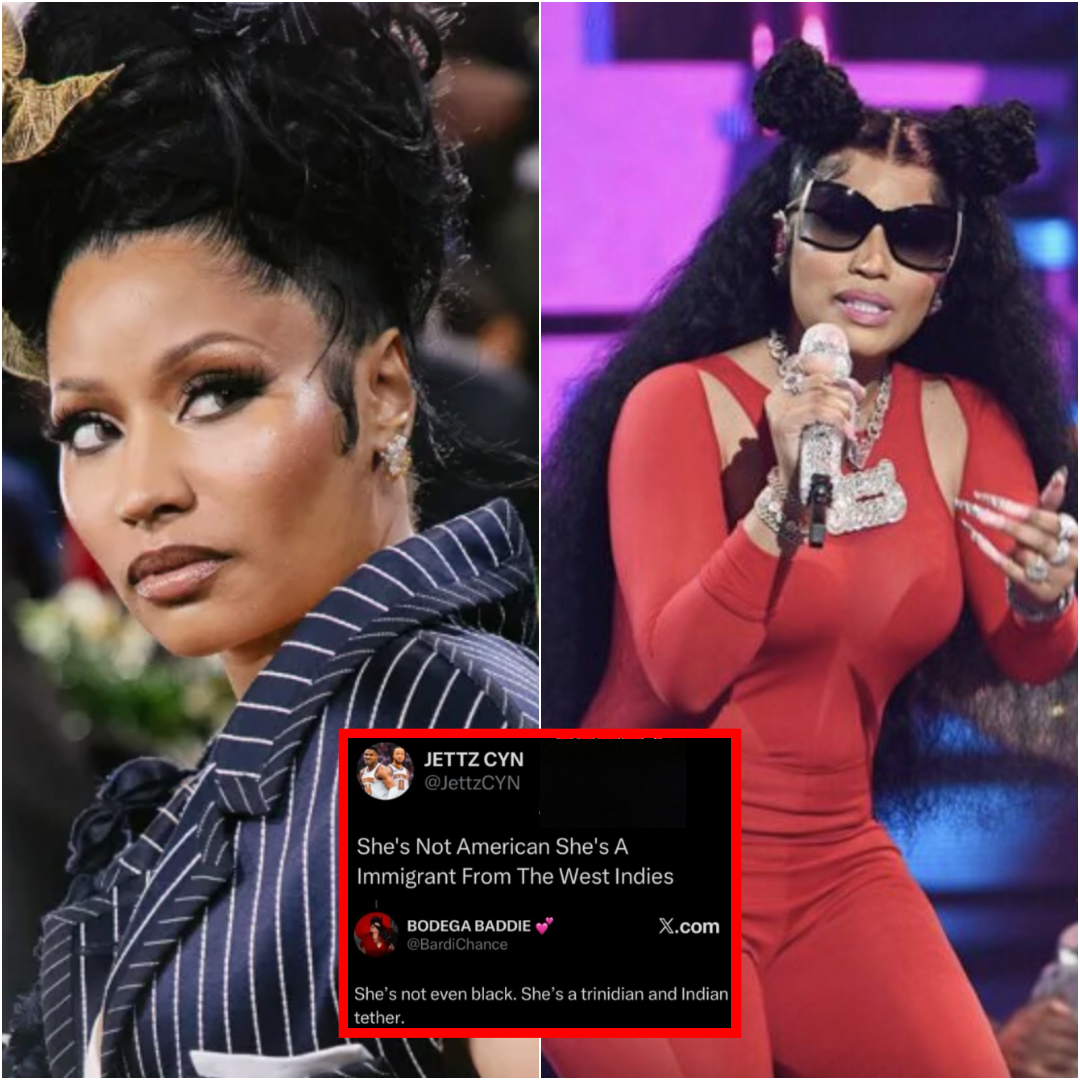
It started with a viral tweet responding to the Barbz — Minaj’s famously loyal fanbase — who called her “the most disrespected Black woman in America.” The tweet fired back: “She’s not even American. She’s from the West Indies. Stop rewriting history.” From there, the internet exploded.
Within hours, thousands of fans jumped in to defend their queen.
“Being Trinidadian doesn’t make her less Black,” one user wrote. “Blackness isn’t defined by borders — it’s a global identity.”
Another added, “Y’all sound crazy. Nicki’s Caribbean roots are part of her magic. She didn’t need to be born in the U.S. to dominate it.”
But others doubled down, arguing that being a first-generation immigrant makes her experience fundamentally different from African Americans who were born and raised in the U.S. “It’s not about hate,” one post read. “It’s about cultural identity — her experience isn’t the same as ours.”
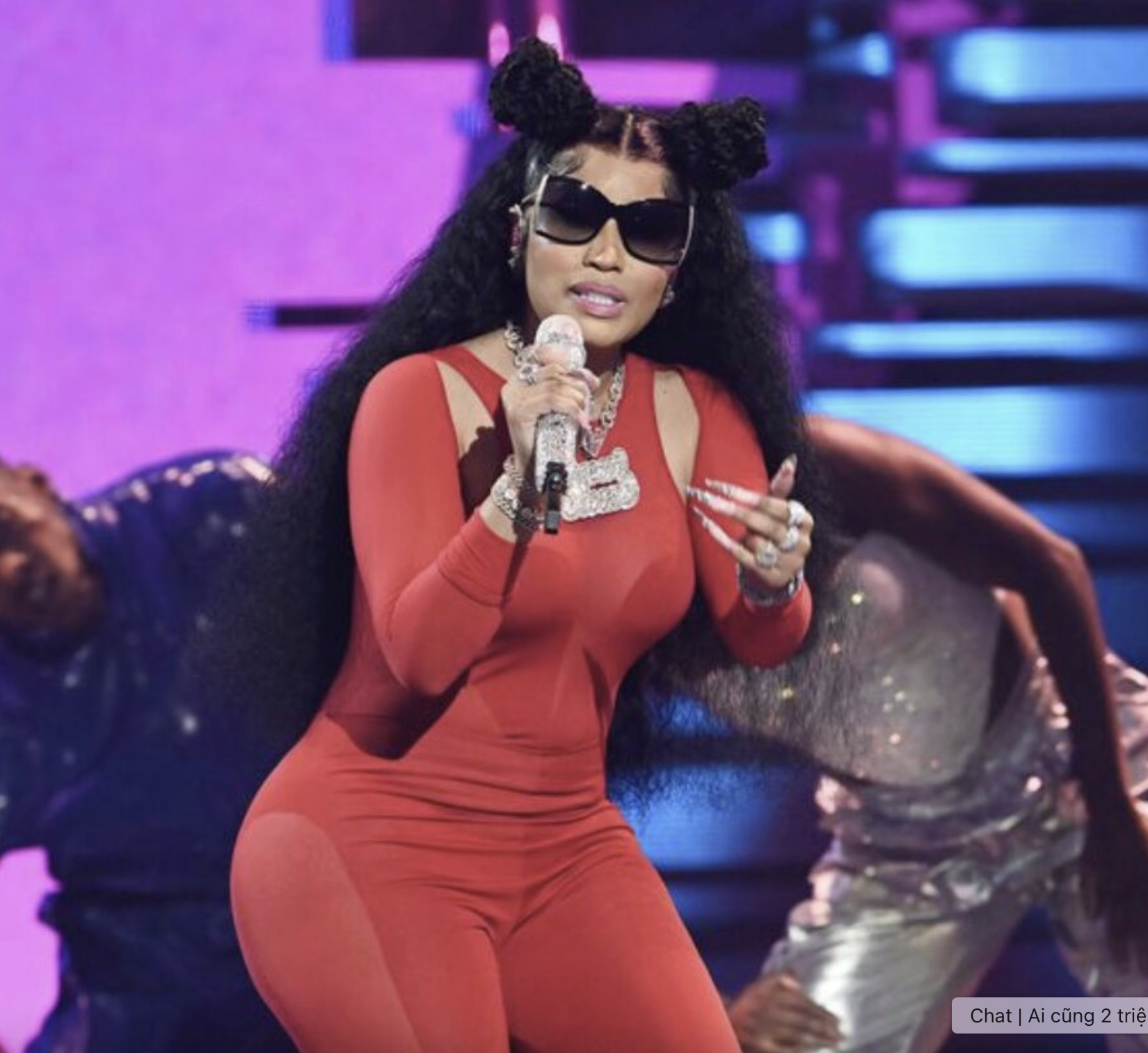
That distinction — between Blackness and Black American identity — has long been a sensitive topic within the diaspora. Many pointed out that conversations like this only divide communities that already face systemic discrimination. “We should be united,” one fan posted, “not fighting over who’s ‘Black enough.’”
Nicki herself has not responded directly to the latest wave of criticism, but she’s never shied away from discussing her heritage. Born in Saint James, Trinidad, and moving to Queens, New York, at age five, she often credits her immigrant upbringing for shaping her resilience and hustle. “I came from a place where nothing was handed to me,” she once said. “Everything I have, I fought for.”
Still, it’s not the first time her identity has been questioned. Over the years, Nicki has faced relentless scrutiny — for her accent, her looks, even her success. The irony, fans say, is that the same country that crowned her “Queen of Rap” also keeps reminding her she wasn’t “born here.”
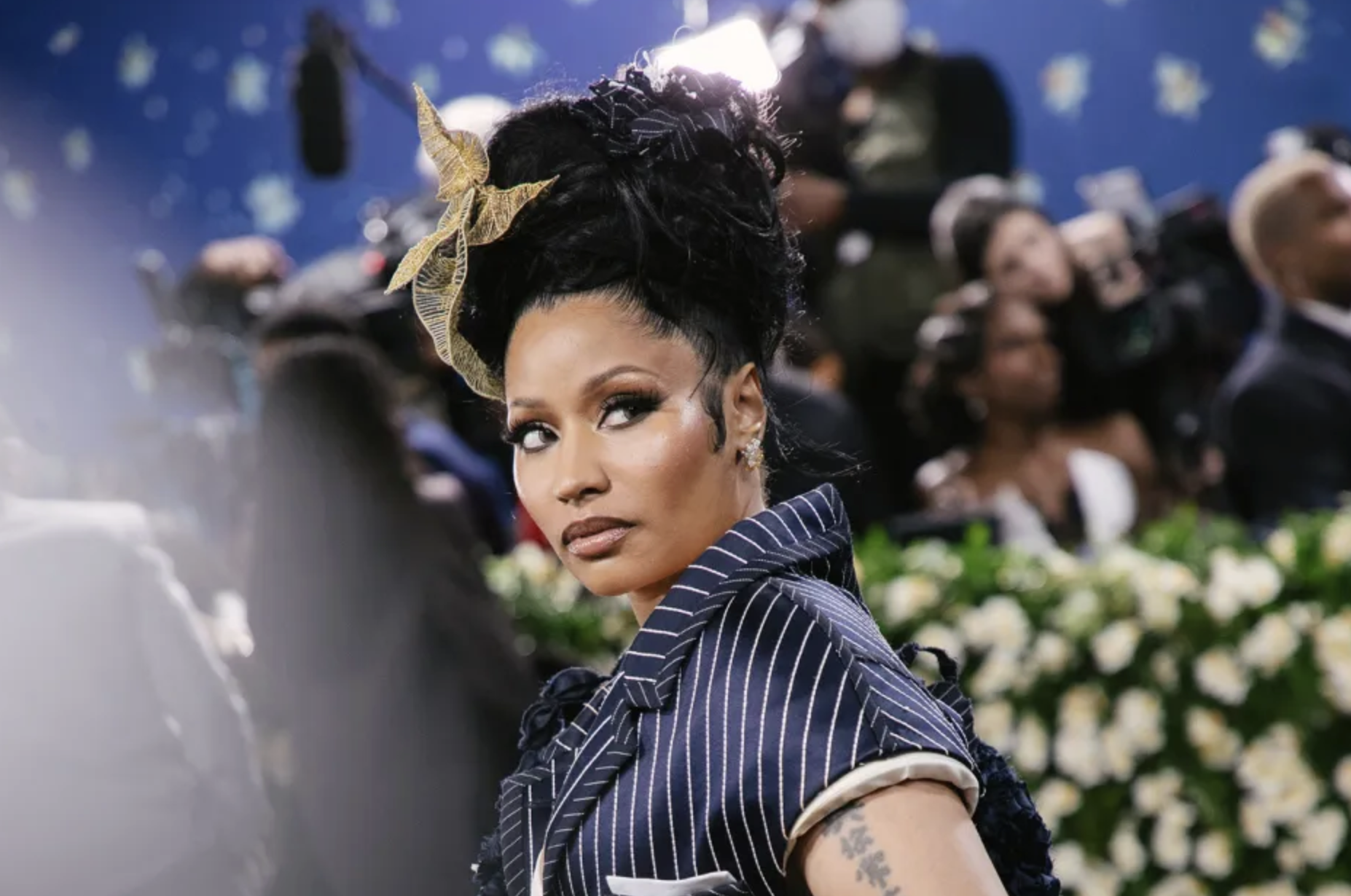
Cultural experts have weighed in too, saying the backlash reveals deeper tensions about race and belonging in modern America. “What’s happening with Nicki is a reflection of how America still struggles to define who gets to be seen as ‘authentically Black,’” said Dr. Mariah Turner, a sociologist who studies racial identity. “Caribbean immigrants have always been part of the Black story in America. Denying that connection is both historically and emotionally harmful.”
In fact, Nicki joins a long list of Black artists — from Rihanna to Drake — whose Caribbean or immigrant backgrounds have been questioned or downplayed despite their massive cultural influence. “These artists redefined what it means to be Black in global pop culture,” Dr. Turner added. “They challenge the idea that being Black and being American are the same thing.”
Meanwhile, the Barbz are turning the controversy into a rallying cry. Across X and TikTok, hashtags like #NickiIsBlack, #CaribbeanQueens, and #RespectNickiMinaj are trending, with fans sharing clips of her early career struggles, her speeches about empowerment, and her unwavering pride in her roots.
“Nicki Minaj walked so a whole generation of immigrant girls could run,” one viral post read. “She made it okay to sound different, to look different, to be from somewhere else — and still dominate the game.”
As the debate rages on, one thing is clear: Nicki’s identity is not up for debate — it’s part of what made her unstoppable. Whether you call her American, Trinidadian, or simply Queen Nicki, her story embodies what the American dream should look like — the tale of a woman who came from nothing, defied every label, and built an empire that no border could contain.
And maybe that’s the real reason the conversation stings. Because for some, Nicki Minaj is a reminder that Blackness, success, and belonging aren’t things America gets to gatekeep anymore.
News
“WE’RE RUNNING ON EMPTY!” — Joe Swash’s Shock Admission About Life With Stacey Solomon Sparks Parenting Debate
Actor Joe Swash has opened up about raising six children in a blended family with his wife, TV presenter and…
“He Suppli3d the G-i-r-l-s”: The Dark Secret Behind Jean-Luc Brunel — The Model Agent Who Fed Epstein’s Empire
In an extract from her posthumous memoir, Virginia Roberts Giuffre remembers the day an ‘apex predator’ recruited her from Mar-a-Lago,…
SEALED NO MORE: Virginia Giuffre’s Banned 400-Page Memoir — Once Feared Lost Forever — Explodes Into Public View October 21
For years, her name was a whisper — a shadow haunting the world’s most powerful circles. Virginia Giuffre, once dismissed…
Rylan Clark and his new funfair worker boyfriend have already discussed having children
RYLAN Clark and his new funfair worker boyfriend have already discussed having children, with them both seeming to be on…
Rich Homie Quan’s Tragic D3ath Shocks Hip-Hop: Fentanyl Overdose Highlights Growing D-r-u-g Crisis in Atlanta
Rich Homie Quan’s cause of death has been revealed. The hip-hop star, 34, died from an accidental drug overdose, according…
Nicki Minaj Blasts Cardi B’s New Album ‘Am I the Drama?’ — Accuses Her of Manipulating Sales!
The rap girlies are beefing again. On Monday (Sept. 29) night, Nicki Minaj threw shade at Cardi B’s AM I THE…
End of content
No more pages to load





